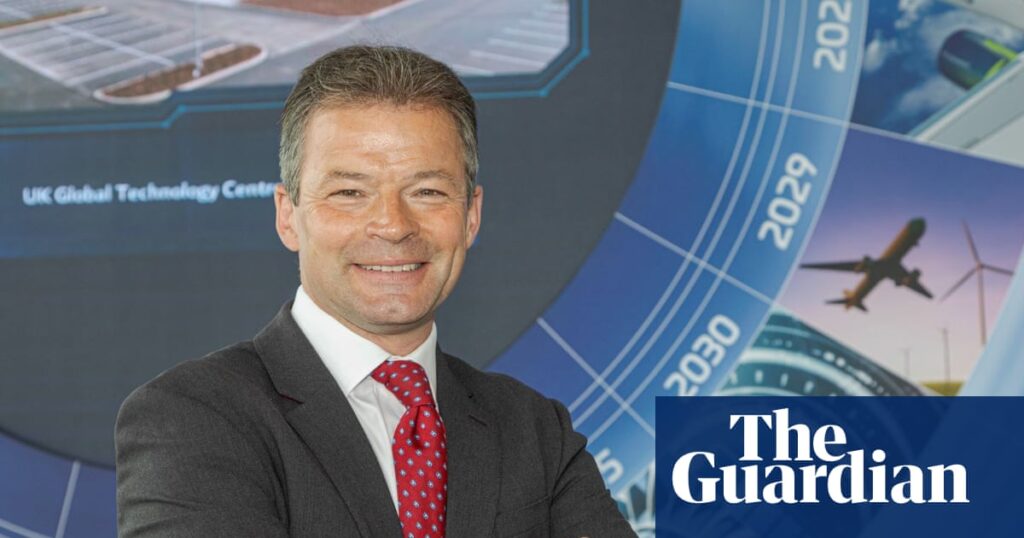The bosses of Britain’s largest listed companies took home record high pay packets for the third successive year, according to a report.
Analysis found that the record set in the last financial year means the average FTSE 100 chief executive is now paid 122 times the salary of the average full-time UK worker.
Executive pay has been on the rise for the past four years, partly as a consequence of pay cuts taken during the pandemic, at a time when many households are still struggling with a cost of living crisis.
The median pay of a FTSE chief executive climbed to £4.58m in the last financial year, up from £4.29m a year earlier, an increase of nearly 7%, according to analysis by the High Pay Centre.
The thinktank report also shows FTSE 100 companies spent more than £1bn on pay during the last financial year, handed out to just 217 executives, representing an almost quarter of a billion pound increase from the same period a year earlier, when executive pay totalled £757m.
Luke Hildyard, the director of the High Pay Centre, said: “These figures will feed a growing sense that low and middle earners don’t get a fair share of the wealth that their work helps to create, while those at the top take much more than they merit or need.”
Much of the rise reflects pay awards at the UK engineering firm Melrose Industries, which was accused of “robber baron capitalism” after it bought the aerospace and automotive group GKN for £8bn in a hostile takeover in 2018. Its executives were paid a total of £212m, according to the analysis.
The High Pay Centre, which campaigns for fairer pay, found that the highest paid chief executives were the current and former boss of Melrose, Peter Dilnot and Simon Peckham respectively, who between them took home nearly £59m for the last financial year, mostly thanks to long-term incentive payments.
Melrose sparked outrage last June by handing out a reward pot worth more than £175m to 21 current and former executives in shares under a bonus scheme set up in 2020.
The lion’s share was received by Peckham, one of the business’s co-founders, along with the company’s former chair Christopher Miller and the former finance director Geoffrey Martin.
The use of long-term incentive payments (LTIPs) by large listed companies rose in the last financial year, with 84 out of 100 chief executives paid an LTIP in the last financial year, compared with 81% a year earlier.
Pascal Soriot, the chief executive of pharmaceutical company AstraZeneca, who spent the last two years as the FTSE 100’s highest paid boss, was pushed into third place in the last financial year after earning £14.7m.
Soriot is now ranked behind the Melrose executives as well as the current and former bosses of the education publisher Pearson on the High Pay Centre’s league table. Andy Bird, Pearson’s current chief executive, and his predecessor Omar Abbosh, together earned almost £19m in the last financial year.
The number of FTSE 100 companies paying their leaders £10m or more increased in the past year, rising from 10 to 13, at a time when Britain’s cash-strapped households continue to feel the squeeze of the cost of living crisis, and the Bank of England has warned that rising food prices could fuel further inflation.
after newsletter promotion
The figures also revealed a gender pay gap at the top of corporate Britain, as female leaders of the largest listed companies still tend to earn less than their male counterparts.
For the nine companies that had a female leader for the entire financial year, median chief executive pay was £3.27m, compared with £4.64m for companies run for the entire year by a man.
The High Pay Centre believes that what it calls “excessive spending” on top earnings by large listed companies often comes at the expense of pay increases for the rest of the workforce.
The High Pay Centre is calling for reforms to regulations governing the pay-setting process followed by corporates, including the full implementation of Labour’s employment rights bill, which includes measures that workers are informed by their employers of their trade union rights.
In addition, the group is calling for more workers to have the power to elect directors to company boards, as well as the reform of corporate reporting on pay, through clearer information being set out in businesses’ annual reports.
“The government now needs to make sure these measures are implemented in full, and supplemented by a real voice for elected worker directors in company boardrooms,” Hildyard said.


